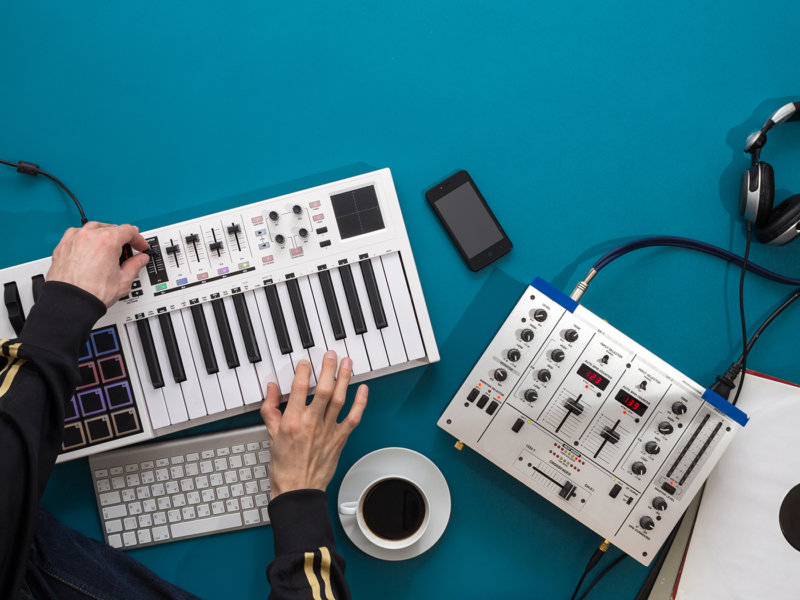Are you new to music production? We can almost guarantee that we have made every mistake when it comes building a studio or producing music. These wise words will help you make music in no time.
1. Monitors are everything
Now that you have a decent amount of money in your bank account, you are ready to spend it on music production gear. What exactly is your bank balance? Divide it by 2 and you can spend at least the same amount on your monitors. Is that really true? Yes. Yes. Your studio monitors will tell you what you’re doing with your music. We are often afraid that honesty will cost us. They must be truthful. You should be prepared to allocate a significant portion of your budget to the people you listen to…
2. The other monitor is also available
We are sure you will agree with us that a laptop should not be your primary music computer unless you are constantly creating music on the go. If so, invest in a good monitor to connect to it. After years of thinking that a laptop was the best way to make music, we upgraded to a desktop, which offered more power, memory, and a larger screen for less money. The bigger screen has changed the way we make music. We can now see our DAW and instruments clearly and are no longer limited by a small screen. Big monitor definitely equals best.
3. Memory…
There are many tips and tricks to speed up your computer. But when it comes down to music production, the most important speed tip is to increase your memory. No matter what type of computer you use, having more RAM will make your experience easier. You can access more effects and instruments, have faster processing and better audio handling. So make sure to upgrade your RAM – it may be cheaper than you think.
4. DAW selection
The most important decision – other than your monitors – is which DAW to use. We’re not going to say one DAW is better than another. Most of the available options have everything you need. We recommend that you try them all, as most of them have a cut-down version. For very little to no cost, you can also experience FL Studio’s loop-based approach or Cubase’s more traditional environment.
5. It is better to have less than you think
We’ve advised you that both types of monitors are expensive. So far, so expensive. We’re now going to show you how to save money. At least not at first, don’t buy a lot of plug-in effects and instruments. Many DAWs are packed with synths, reverbs, and delays. Make the most of these features before you spend a lot on third-party plugins. Music production can become overwhelming if there is too much choice.
6. Do one right
Talking of plug-ins: The sheer amount that come with a DAW can sometimes be a bit overwhelming. We recommend that you pick one and get to know it well. It is always good to have one synth or effect that you can use all the time. You’ll find it useful to have a go-to synth or effect that you can use every day. A working knowledge and intimate familiarity with one plug-in will give you confidence and speed up your production workflow.
7. You can template yourself
Tip 6 goes one step further. Once you have a few favorite plug-ins, you might consider creating a template in any DAW. These projects are just projects that you load into the DAW, usually when it starts. They have all your favorite plug-ins on different channels. For example, you might have each channel set up with a compressor, EQ, and your favorite synths on the four first tracks. Then, drums can be added to track 10. Templates save time and make music faster.
8. Don’t overdo it
While it is sensible to limit the number of plug-ins you use, it is also wise to reduce their usage. Older computers won’t appreciate too many plug-ins. However, it is a good idea to use fewer effects or be more subtle with the ones you do use in music production. If you are a prog rocker, mixing a lot of effects will not help.
9. Get a decent keyboard
Finally, gear advice: Get a good keyboard. We tried the computer-keyboard option to play in notes when we were considering a laptop. While it is possible with most DAWs, it can be a frustrating experience. Get a full-sized keyboard. You’ll find it inspiring, and your office will instantly become a studio because it contains proper-looking instruments. It will be easy to make music, and not just write emails.
10. Learn by reading, watching and learning
We recommend that new producers shadow experienced music makers to learn how they create their productions. While we don’t advocate stalking anyone, if you find yourself looking over someone’s shoulder and getting the creeps, there are many online tutorials that will help you get started. MusicTech also has a huge beginner’s library!
